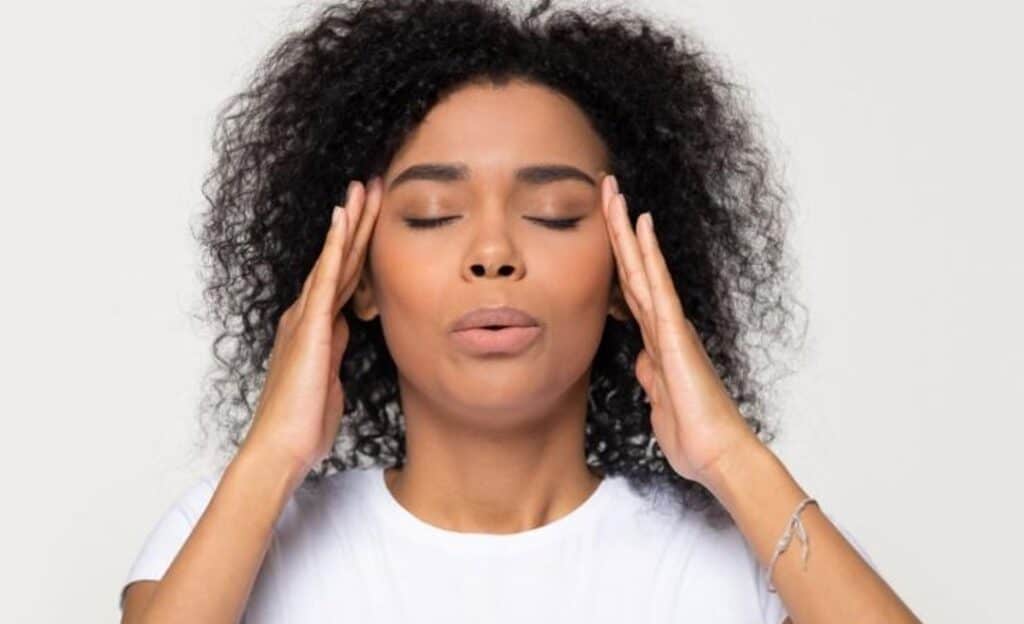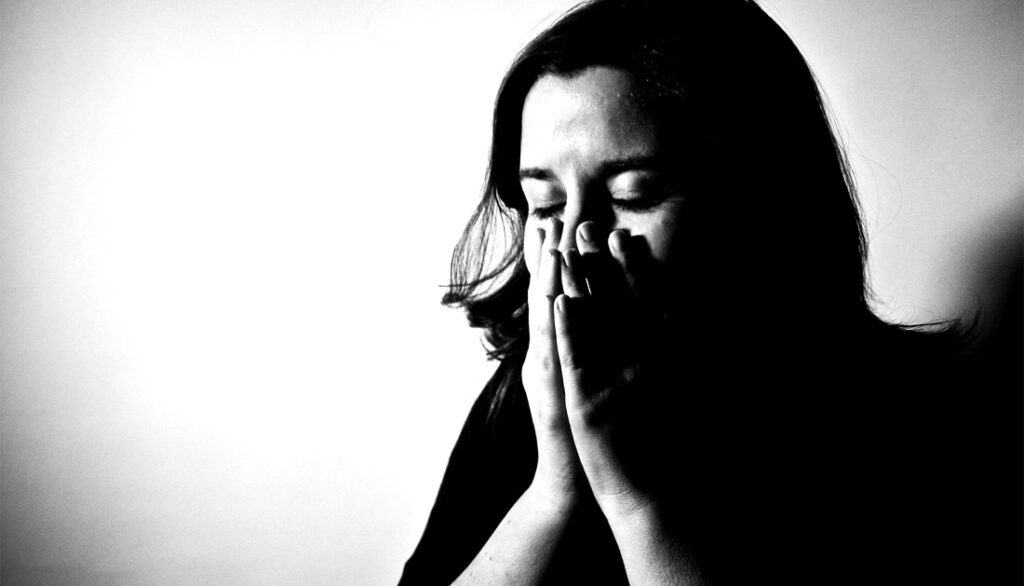You have undoubtedly heard the terms stress and anxiety. To most people, they appear to be two sides of a coin, but there is a lot more to these terms. In order to best improve your stress and/or anxiety, it’s important to understand the differences between the two.
Stress can be defined as any demand placed on your physical body or brain. This is usually a scenario or event that frustrates or makes you nervous and can trigger stress.
On the other hand, anxiety is a feeling of uneasiness, worry, or fear. For the most part, anxiety is a byproduct of stress, but it can also appear without any apparent trigger.
A reason we tend to compare stress and anxiety disorder is because they share some identical symptoms, such as:
- Anger or irritability
- Muscle tension
- Difficulty concentrating
- Digestive problems
- Trouble sleeping
Most people experience anxiety or stress at one point in life; these experiences shouldn’t be viewed as “negative.” This is because anxiety and stress can sometimes be useful motivators, spurring you to accomplish challenging tasks or feats you ordinarily wouldn’t achieve.
In fact, stress can actually be positive (this is also called eustress). I wrote about it in this article for Mind Body Green.
Unmanaged anxiety and stress can take a heavy toll on your physical and mental health, which can be detrimental to your daily life.
What Is the Difference Between Stress and Anxiety?
The major difference between stress and anxiety is the manifestation of a particular trigger. Stress can be linked to a particular event; once that event ends, stress dissipates.
Stress
Stress could result from an important promotion or interview. It could also mean having to remote work from home in a house full of kids vying for your attention and affection.
In either scenario, there is a particular reason for your stress. When the interview is finished, or you finally have the house to yourself, your stress levels begin to reduce.
This doesn’t mean your elevated stress levels are temporary. Chronic stress is the term given to prolonged stress that occurs due to continuous pressure, such as a family conflict or a demanding job.
Anxiety
By design, anxiety disorder doesn’t have a particular stressor or trigger. And while anxiety and stress are different, they are inexplicably linked. In certain situations, stress can trigger a panic attack. When you are worried about a particular scenario, such as an upcoming move, you might begin to feel particularly nervous for no reason.
What Causes Stress and Anxiety?
Stress
Stress generally occurs in response to mental or physical pressure. This pressure can involve a significant change such as:
- Moving
- Dealing with an injury or illness
- Experiencing the death of a friend or family member
- Having a child
- Getting married
- Having a family member or friend who is injured or ill
Nevertheless, stressors don’t have to be life-changing. Some of the following seemingly “little” things can also cause you stress:
- Stress and anxiety disorders
- Dealing with a project deadline
- Having a long actionable list to handle over time
- Attending an important work meeting
Anxiety
Anxiety and stress tend to frequently occur or sometimes seem disproportionate due to underlying conditions such as:
- Obsessive compulsive disorder: This condition results in repeated thoughts and the compulsion to finish certain ritualistic actions.
- Social anxiety disorder: This is a disorder that creates intense anxiety feelings in social scenarios that require interacting with other people.
- Post-traumatic stress disorder: When triggered, this condition causes anxiety or flashbacks due to previous traumatic experiences.
- Panic disorder: This condition results in panic attacks, defined as moments of extreme fear with shortness of breath, a paralyzing fear, and a racing heart.
- Generalized anxiety disorder: This is a prevalent anxiety disorder exemplified by uncontrollable worrying. Sometimes, people worry about negative things happening to them or those around them. Other times, it can be difficult to ascertain the source of worry.
How to Know if You Are Experiencing Anxiety or Stress
Since both stress and anxiety have similar symptoms, it can be difficult to determine which one you are actually experiencing. The first thing to do is to take some time to think about what’s going on in your life. What are you worried about?
For instance, it could be car problems. Maybe you know that you need to get new tires, especially with the weather changing, but you can’t afford them. Over the next few weeks, you might feel uneasy about driving. You start to wonder if your vehicle will hydroplane one night while heading home.
Fast forward to a couple of weeks later, and you finally purchase your new tires. This means you can stop being so concerned about driving around safely. In this situation, your nervousness results from the stress brought on by driving on old/bad tires.
However, if you change your tires but discover that there isn’t a change of feeling due to that stressful situation, and you are still concerned about driving, it could be anxiety.
If you, for some reason, have a vague feeling of uneasiness that doesn’t seem to make sense while driving, then you may be suffering from an anxiety disorder.
Here’s a simple test: If you can link your feelings to a particular stressor, it is likely due to stress. However, if you can’t put your finger on the cause, or your physical symptoms are still present after the initial stressor has disappeared, you could suffer from an anxiety disorder.
What Do They Feel Like?
Anxiety and stress tend to generate a host of psychological and physical symptoms. With stress, some of the symptoms are:
- Elevated heart rate
- Changes in appetite
- Restlessness
- Feelings of overwhelm
- Increased sweating
- Headaches
- Irritability or anger
- Trouble sleeping
- Digestive issues such as diarrhea and nausea
- Muscle tension
- Dizziness
Anxiety symptoms, on the other hand, are:
- Brain fog
- Numbness or tingling
- A feeling of impending doom
How to to Deal With Stress and Anxiety
It isn’t uncommon to experience anxiety and stress from time to time. Fortunately, there are a few strategies we can all use to ensure that anxiety symptoms are more manageable.
- Focus on how your mind and body respond to anxiety-producing situations and stressors. Doing this can help you anticipate your first reaction when you experience a stressor next, making the entire process less disruptive.
- You could also make a few lifestyle alterations to help alleviate anxiety symptoms and physical symptoms of stress. The techniques listed below are often used in combination with medical treatments.
You may want to hire a professional to help you – a therapist or psychiatrist, or a life coach like me!
Therapists or psychiatrists might recommend some of these approaches:
- Commitment and acceptance therapy, which can be used to teach you to accept and manage with negative emotions
- Exposure therapy— a therapy in which a coach helps you progressively expose yourself to certain stressor environments and stimuli. This can help people eventually overcome the stressors.
- Cognitive behavioral therapy can help you learn how to identify anxious behaviors and thoughts.
Coaching can be an effective way to better understand yourself. Sometimes the stressors aren’t in our environment but within ourselves and intertwined in how we think. Spending time to discover yourself can help you better understand your intricacies.
You can lower anxiety and stress by:
- Opening up to those close to you concerning how you feel
- Practicing mindful breathing exercises
- Creating time for activities and hobbies that bring you joy
- Meditating
- Getting frequent exercise
- Getting a sufficient amount of sleep
- Limiting alcohol and caffeine consumption
When Should You Seek Help?
When anxiety or stress begins to negatively affect your daily life, and you’ve gone beyond the skill set of your friends, it’s time to call in a professional. Maybe you are going through a career change or are launching a new business. Just being a human being these days – managing social pressures, (social media!), #adulting or #beingakid alone can cause stress and anxiety!
A coach can help you recognize these potential stressors and develop efficient coping mechanisms to lower the impact of those stressors.
With a coach like me, you can be sure of getting help from someone firmly in your corner. I have already coached thousands of clients in pursuit of their goals and have developed a coaching process to help people handle change more efficiently.
Regain Control From Stress and Anxiety
While anxiety and stress are normal occurrences in life and are expected, it is still important to clearly recognize when these feelings create negative consequences that affect healthy living. If your anxiety and stress appear to be uncontrollable, reach out to help from a professional.





